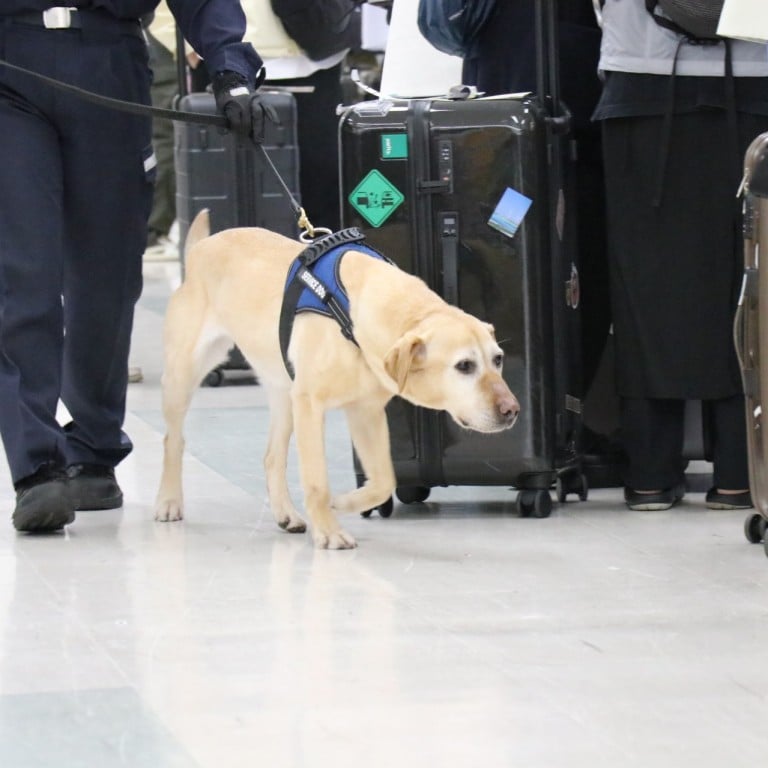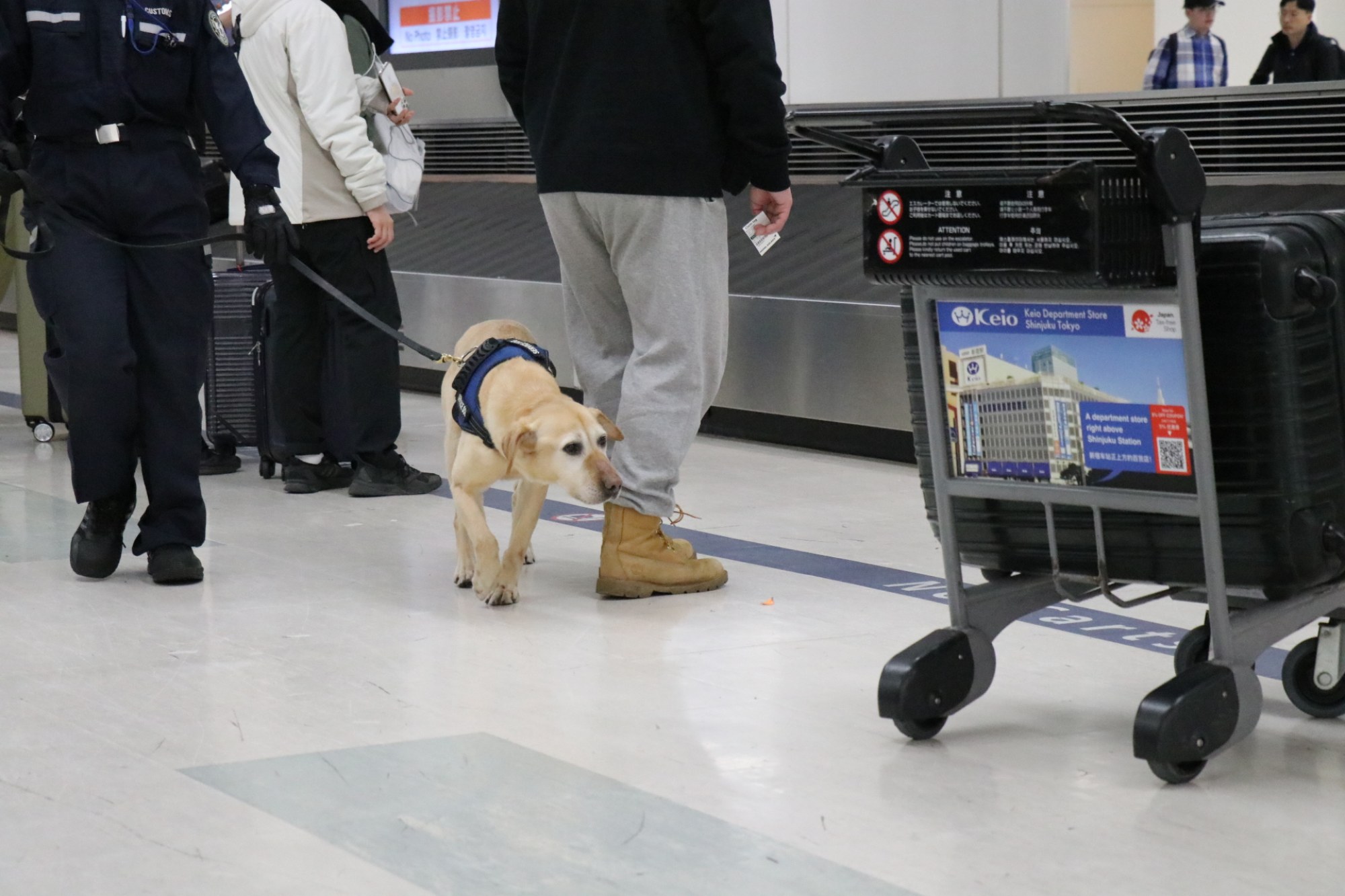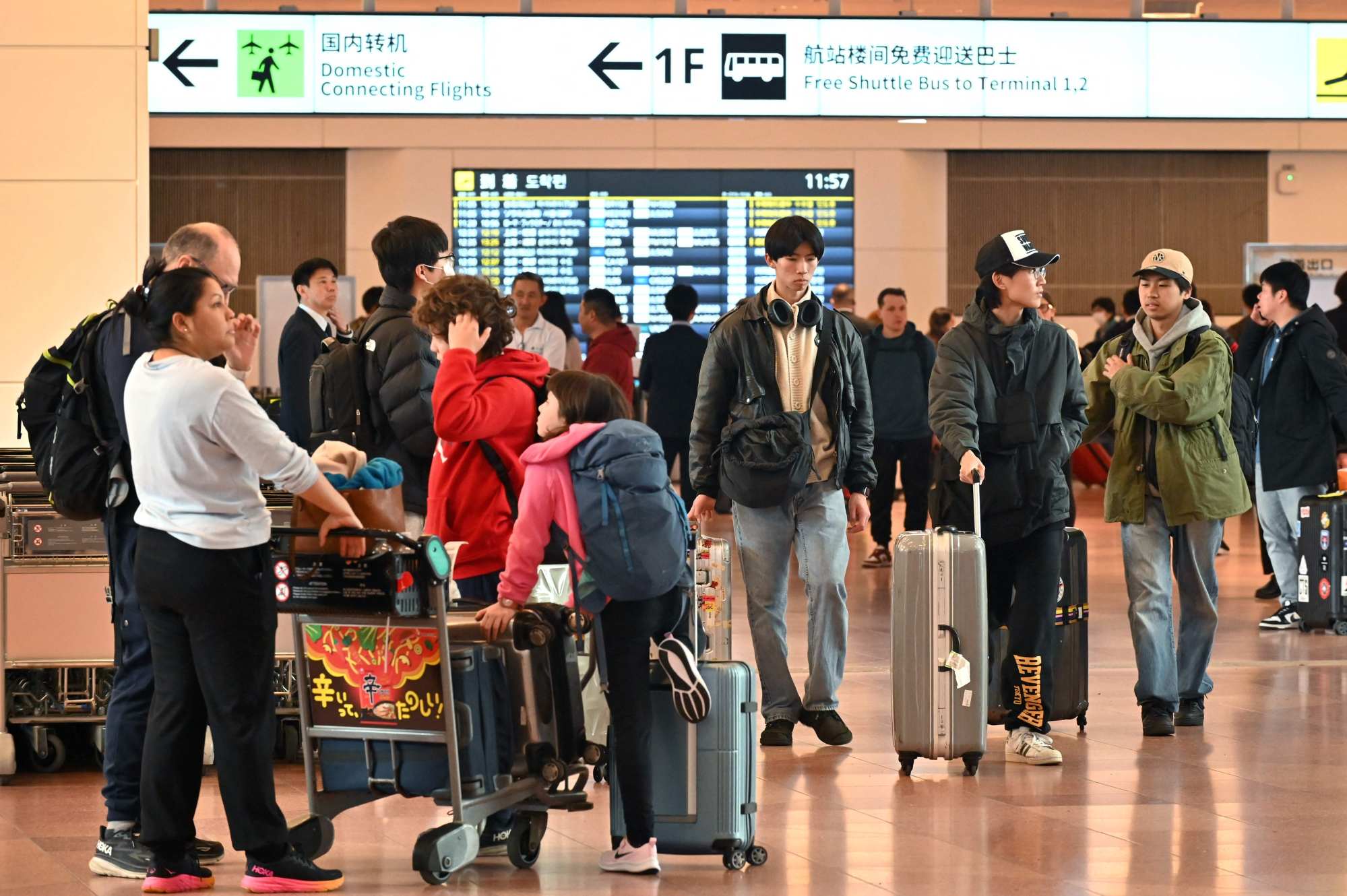
Japan’s ‘super’ sniffer dog Melba retires, counts US$11.8 million drug bust as biggest-ever case cracked
- Eight-year-old Labrador retriever, the equivalent of 60 in human age, began her tour of duty at Narita and Haneda airports in 2017
- Canine achieved acclaim in 2019 after detecting 29.94kg of illegal stimulants in the suitcases of a Canadian traveller
The bane of smugglers attempting to enter Tokyo with their illegal cargoes, Japan’s most prolific drug-sniffing dog, is hanging up her leash.
Melba, a Labrador retriever, first began padding the arrivals halls at Tokyo’s Narita and Haneda international airports in 2017 and has since earned a reputation as a narcotics-detecting “super dog”, the Mainichi newspaper reported on Monday.
Now eight years old, the equivalent of around 60 in human terms, Melba achieved acclaim in February 2019 after detecting 29.94kg of illegal stimulants in the suitcases of a Canadian traveller arriving at Narita Airport from Montreal. The drugs were concealed inside plastic bags within items of clothing and had an estimated street value of 1.8 billion yen (US$11.85 million).
The seizure was the largest ever by a drug-sniffing dog in Japan.

“Melba is a superior detector dog because she does not rely on her handler when she is carrying out an inspection,” said her handler at Japan Customs, who cannot be named for security reasons.
“While other dogs require constant guidance, Melba is able to independently dig through baggage to track down the source of a smell. This skill is particularly valuable in airport inspections, where baggage and passengers are in constant motion.”
After her well-earned retirement, Melba will be assigned to a new owner outside the agency, with applicants for retired drug-detecting dogs specially selected for their compassion for animals and experience in caring for ageing pets.
According to Japan Customs, Melba is the most successful narcotics-detection dog in the agency’s history.
“Two detector dogs came to Japan in 1979 with the cooperation of US Customs and about 130 drug detector dogs are assigned to customs throughout Japan at present,” it said in a statement. “The drug detector dogs have spotted a large amount of illicit drugs to date, such as cannabis and methamphetamines.”
In the run-up to Tokyo hosting the 2021 Olympic Games, a new generation of sniffer dogs specially trained to weed out different types of explosives was also deployed at key air and seaports, the agency said.

The canine have not always been successful, however, with customs officials horrified at a bizarre incident in 2008 in which 142 grams of cannabis, worth around 1 million yen, was placed in the luggage of a passenger arriving at Narita Airport aboard a Cathay Pacific flight from Hong Kong as part of a training exercise.
The drug-detecting dogs missed the consignment, and the passenger collected his suitcase and continued on to his hotel in the Shinjuku district of Tokyo. Upon opening the bag, the passenger was horrified to find narcotics had been planted among his belongings, and he contacted police.
The customs officer who planted the drugs admitted he was aware his actions were prohibited but said he wanted to make the exercise as realistic as possible for the dogs. The official received a reprimand.

